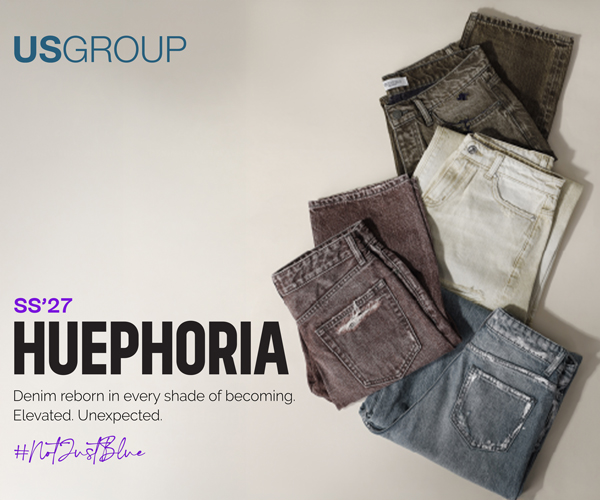‘We will finally have a UK washing aesthetic’

London-based jeansmaker Blackhorse Lane Ateliers has set its sights on a washing facility that will be open to designers, students and brands.
When Han Ates opened his jeans making facility in 2016, he made a conscious decision not to wash the garments in London. At the time, he believed washing was not very sustainable, in terms of the chemicals and resources used, and the wastewater produced. Having spent a lot of his career in the apparel sector, he wanted to move away from overconsumption and damaging processes.
But over time, his stance has softened. “One reason is it is a bit more sustainable now, and two, there are lots of other UK companies that want to wash jeans, who travel to Italy, to Bangladesh, so they rack up lots of air mileage,” he says. “We thought if we have a sustainable wash we could use the air mileage for the sampling and for the research and development, then at least we can reduce it in that way.”
Mr Ates has been in the textiles industry for many years, setting up a factory in Walthamstow then sidestepping into the restaurant business for a short interlude before returning to his roots to establish Blackhorse Lane Ateliers. He wanted his new business to escape the “beast” of the fashion industry and to follow a different path, and last year opened a shop near London’s Kings Cross to increase exposure.
The philosophy is ‘buy one pair of jeans’ – the thinking being that they are so well made that if they are cared for, they will last, and this will reduce consumption and the pressure on the planet. “Connectivity is so important,” says Mr Ates. “If you go to any high street or shop assistant, if they don’t know how the garment is made or washed, they can’t tell the story. But when the consumer comes to us, we are able to tell them who made the garment, where it is made, where the fabric’s from and sometimes where the cotton is from. That creates connectivity: you open the imagination of the consumer, a magical moment when they are connected to the brand and they are connected to other local companies. And with that they can wear something they feel connected to and they look after it better.”
Customers are those that know denim, or want to know; the fabrics, sourced from Orta, Isko, Kurabo and Candiani are clearly explained, and he runs an open door policy at the factory, to encourage an even greater understanding.
In April, BLA was among 10 fashion businesses awarded a share of £1.2 million by the Business of Fashion, Textiles and Technology (BFTT), a partnership with UK universities and funded by the UK Industrial Strategy Challenge Fund. The scheme aims to boost productivity via creative R&D, backing businesses to create jobs and increase earning power with investment in skills, industries and infrastructure. Professor Jane Harris, BFTT programme director, explains that small-to-medium enterprises make up over 95% of creative businesses in the UK. “This initiative is intended to address the challenge of maintaining growth in the crucial early years of business, while providing support for much needed innovation, and sustainable growth, especially in these challenging and rapidly changing times.”
BLA will use the funding for the washing facility, which will be a small unit where designers, students and brands can come to learn about washes and test their own recipes. Based about 300 metres from the factory, the two will link and be part of a wider project around waste that the company is working on.
“One of the things I am excited about is that we don’t have a washing facility in the UK,” Hans continues. “If you go to Spain, Turkey, Bangladesh, Italy, they have their own washing aesthetic; we don’t, we rely upon other people’s imagination. So, when we put our wash lab here, we will gradually create our own London or UK wash aesthetic.”
With the backing from the universities, BLA is keen that the facility will help young designers or start-ups develop their collections – for instance, they could create a wash and receive feedback from customers and come back to tweak it.
The company is currently selecting partners to work with, and hopes to begin the construction in the new year, to open by around April 2021. “This will enable a more creative process and through that you evolve your own knowhow with the customer. We will have finally our own UK washing aesthetic, and that’s the exciting bit.”













